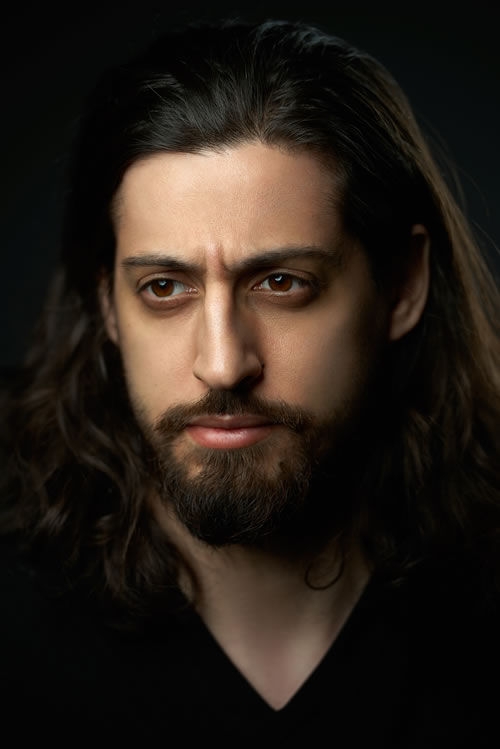Headshots are a great way to showcase confidence and personality through photos. Many people are leaning towards professional headshots to boost their personal branding. With high-quality headshots, you can create a lasting impression on people.
However, taking a professional headshot that conveys the impression you want to send is difficult. That’s why we share some expert tips on how to take a headshot from the experience of a professional headshot photographer. So, stick to the end if you want to up your headshot photography game.
The Importance of Quality Headshots in Building Your Image
A quality headshot essentially becomes your face in the professional world. Headshots, whether your resume, professional accounts, LinkedIn profile, or any other professional use case, have become vital.
Here’s a quick rundown on the importance of a professional quality headshot in building your image.
- It helps you create first-impression magic through quality headshots that grab attention and emit positive impressions online.
- A professional headshot shows you take your image seriously and builds credibility.
- Helps you capture your unique spark, warmth, or creativity to connect on a deeper level.
- Great for maintaining a unified image across platforms for a polished personal brand.
- Gets you noticed and leaves a lasting impression in a sea of generic headshots.
What Gear Do I Need to Take Stunning Headshots?
Let’s review the basic gear you need to take stunning headshots. These gears are the minimal setup you need to start taking high-quality headshots. You can add to these gears to upgrade your setup and the photograph quality, but let’s stick to the beginning for now.
The Camera
Well, you will need a camera to click your photos. However, these days, it’s unnecessary to have a proper camera. Even the camera on your smartphone can click some amazing headshots.
Most newer phones have excellent image quality and high-end portrait modes with adjustable depth of field. These features are enough to click some top-notch headshots.
But if you want to truly go professional, you might need a professional camera. Depending on your needs, you can choose between a DSLR and a mirrorless camera for headshots.
Lens
When you go the professional camera route, you must also pair it with a lens. It’s best to get a prime lens for clicking quality headshots, as they are better suited for portrait photography. The most common choices by professionals are 35mm and 50mm lenses.
Lighting gears
The lighting gear you need depends on what you want to achieve. If you rely on studio lighting, you have to get gear like softboxes, flashes, diffusers, portrait lights, etc. However, the best results come when natural lighting sources like the sun are used. Choosing a spot near the window where slightly diffused sunlight comes without any harshness works the best.
Backdrop Basics
A plain wall with a solid color is all you need for the background of your headshots. Avoid anything fancy or distracting here because the focus of your headshots should always be the photograph’s subject.
Aim for a clean, uncluttered background that won’t distract from your face. If you’re feeling creative, you can experiment with textured backdrops like exposed brick or fabric—just ensure they don’t overpower your image.
Reflector:
Reflectors are crucial for headshot photography because of their ability to diffuse light. You never want the subject on headshots to appear harsh in the photos. Using a reflector bounces light back onto your subject, reducing harsh shadows. You can improvise with a large white foam board for a budget-friendly solution.
Tripod
If you’re using a camera, a tripod ensures stability for sharper photos, especially in lower-light conditions. A tripod also helps you stay at a certain angle, which ensures all the headshots are consistent and have no geometry flaws.
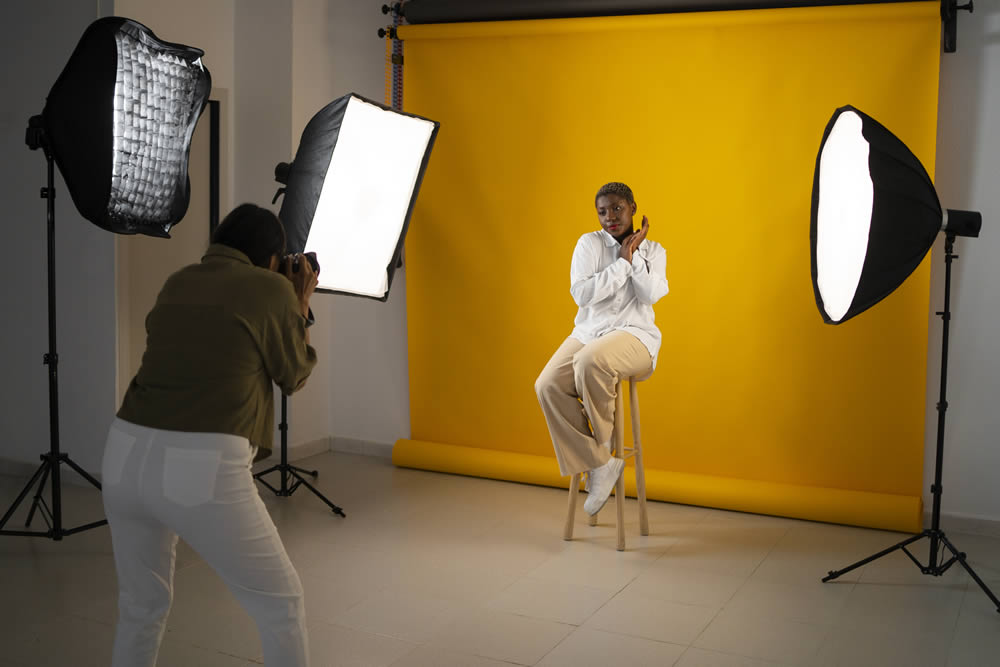
Tips For Taking Professional Headshots With Crucial Results
Enough of the basics! Let’s get down to business now. Here are the most effective headshot photography tips from expert headshot photographers worldwide. So, these tips will surely help you regardless of your origin.
Once you review the tips and implement them in your headshots, your clients will always be satisfied.
1. Know What Your Client Needs
Before setting up your camera, the first thing you have to do to take a perfect headshot is understand what your client wants. For instance, a lawyer may seek to portray authority and trust through their headshots, while an artist may aim for a creative and expressive image.
Understating these needs is essential to tailoring your approach to show professionalism and ensure the final product aligns with the company’s vision. Don’t treat all the headshots the same; try to find the uniqueness of the photo by knowing the client’s needs.
2. Schedule a Pre-Session Consultation
Communication is the key to learning what your client needs. A pre-session consultation will allow you to showcase your knowledge and skillset to your client.
You can schedule a consultation to discuss wardrobe options, answer your client’s questions, and get a feel for their personality. This builds a closeness with the client, which puts them at ease and sets the stage for a smooth and productive photo shoot.
3. Choosing the Right Outfit
The next factor that matters for quality headshots is the outfit. Remember that headshots are all about the model and how they appear in the photos. It has nothing to do with how the surroundings look. When it comes to clothing for your headshot, simplicity is key.
Solid colors that complement your skin tone are your best bet. Avoid busy patterns or anything that might be too distracting. Opt for professional attire if you’re aiming for a corporate look or something more creative in a field that allows for more personality.
4. Choose Solid Colors for a Favorable Look
Colors play a vital role in making or breaking a headshot. Whether it’s your model’s clothes or the colors of the surroundings, always go for solid, light colors. Avoid loud colors or intricate patterns that distract people from the subject.
Solid colors create a clean, professional look and won’t compete with your face for attention in the final image. At the same time, jewel tones like cobalt blue or emerald green can add a touch of personality without being overwhelming.
5. Ensure correct body position
Headshots are primarily meant for professional purposes. Here, you are not looking to flaunt the model; instead, present them in a formal setup that looks professional enough. That’s why maintaining a good posture with shoulders back and relaxed is important.
While keeping the body posture right, you can experiment with different angles. For example, a slight turn to the side can often appear more natural and approachable than a perfectly straight-on pose. Remember, confident body language translates into a confident headshot.
6. Shoot in Manual Mode
While auto mode can work in a pinch, true professional results often come from shooting in manual mode. This allows you to control the aperture, shutter speed, and ISO for optimal lighting and a more polished look. Also, once you start using manual mode, you will love the feeling you get as a photographer.
With professional mode, all your intentions will transpire to the camera, as you will set them on your own. Even as a beginner, it’s not that difficult to shoot in manual mode because there are plenty of online tutorials to get you started.
7. Make Good Use of Lighting
Lighting is arguably the most crucial element in capturing a great headshot. The best tip you will ever get with lighting is to use natural window light whenever possible. Natural window lights always make subjects look exceptionally good in the headshots. And if you want to soften the effect, you can use a reflector.
Creating a similar effect to natural light with studio lighting is difficult. You must spend money on gear and experiment to get the perfect balance of highlights, shadows, and exposure.
8. Ensure the Client’s Comfort is Maintained
A relaxed subject translates to a more genuine and approachable photo. Make your client feel comfortable during the shoot. Since headshots focus on the face, they easily capture any discomforting expression on your client’s face, ruining the photo entirely.
You can try various methods to ensure your client is comfortable. This might involve chatting to ease their nerves, offering them water, or playing calming music. Also, don’t pressure them into striking poses; let them be their natural selves. A comfortable client is likelier to loosen up and let their personality shine.
9. Stay calm and Unwind
You also need to be calm and comfortable with your client while taking the picture. They will always lack something if you are hesitant to take the shots. Headshots are not only about the confidence of the subject; they are also about the photographer being sure of what they capture.
Take a deep breath and remind yourself of your skills. If you’re taking your headshot, take a few moments to relax your shoulders and focus on your breath. A calm and collected approach will lead to better results.
10. Relax & Have Fun
Headshots don’t have to be all serious. While you want to maintain a professional look, there’s room for a touch of personality and a genuine smile. On the contrary, a stiff pose with no smile or bland expressions makes the headshots look awful with a lack of personality.
Crack a few jokes with your client, experiment with different expressions, and capture that spark of personality that makes you, you. After all, a headshot that showcases your genuine personality is more likely to be memorable.
Types of Headshot
The world of headshots goes beyond the simple LinkedIn profile picture. Different professions and goals call for different headshot styles. Clicking headshots in each of these styles requires different approaches as well. Let’s get a breakdown of these styles; you will know how to take the best headshot.
The Actor’s Headshot
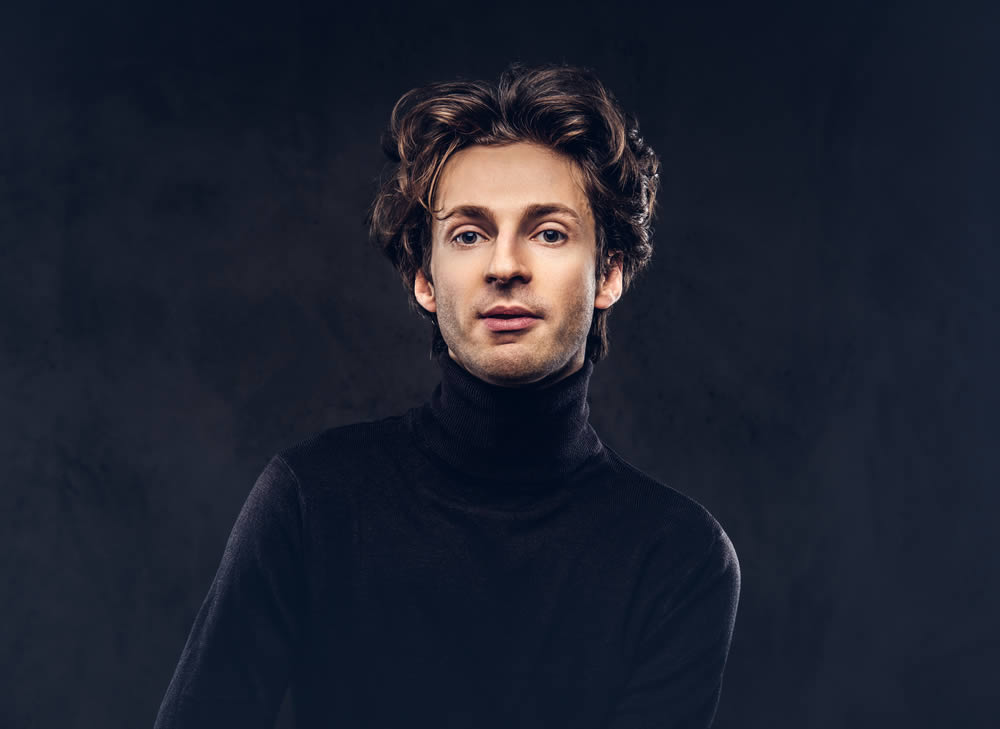
People who aspire to be actors must always take headshots for their modeling portfolios. A headshot is a portrait designed to showcase an actor’s versatility and ability to embody different characters through body language and expressions.
For this type of headshot, dramatic lighting and expressive poses are key. Consider using dramatic stares, genuine smiles, and a touch of vulnerability to make the photos more expressive. The focus here is on capturing the actor’s ability to express their emotions based on different characters.
The Corporate / Business Headshot

Corporate headshots are much different from actor headshots. A corporate headshot has to project authority, trustworthiness, and approachability for use in professional settings. In these photos, the subjects present themselves professionally, as if they are the face of the business.
Here’s how to take a business headshot properly. First, professional attire is a must. Then, you must think about clean lines, neutral colors, and a confident smile. The lighting should be even and flattering, avoiding harsh shadows. You can easily take a good-looking corporate headshot by ensuring these key factors.
Editorial Headshots

Unlike classic headshots focused on professionalism or a specific role, editorial headshots are all about breaking the mold. They’re designed to grab attention and tell a story through bold visuals, unique concepts, and artistic flair.
Experiment with lighting, backgrounds, and poses to create a unique and memorable image. This is an excellent option for individuals in creative fields or those looking to stand out in a crowded job market.
Modeling/Makeup Headshot
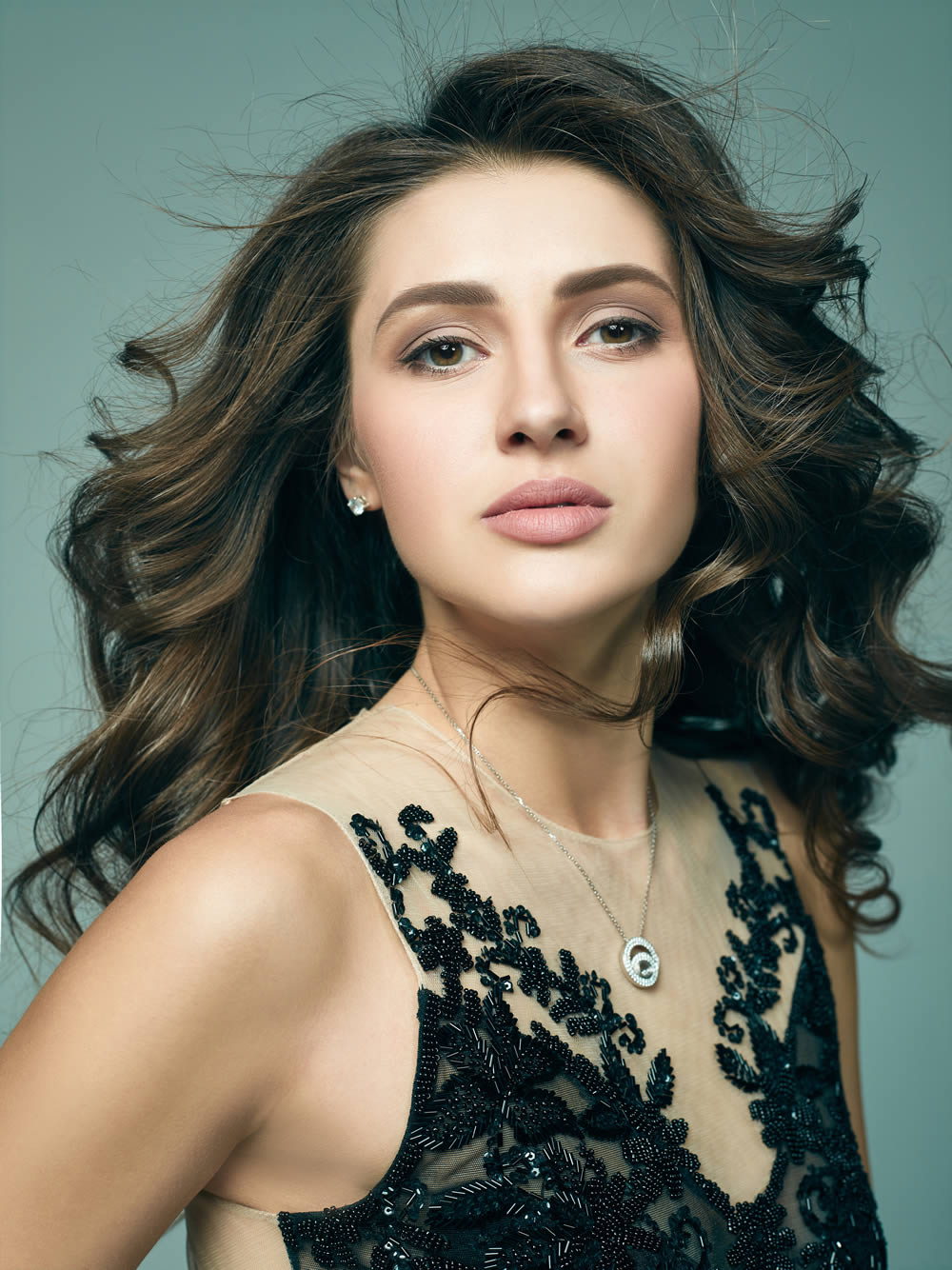
Modeling or makeup headshots typically don’t focus on personality or experience; they showcase beauty and highlight the ability to adapt to different makeup styles. Many people confuse these with the actor’s headshot, but these headshots don’t require the model to be expressive with emotions.
Clicking flawless modeling headshots, applying impeccable makeup, and styling hairstyling are critical. The focus is on highlighting the model’s natural beauty and features. Clean backgrounds and soft lighting allow the model’s face to take center stage.
Kids Headshots
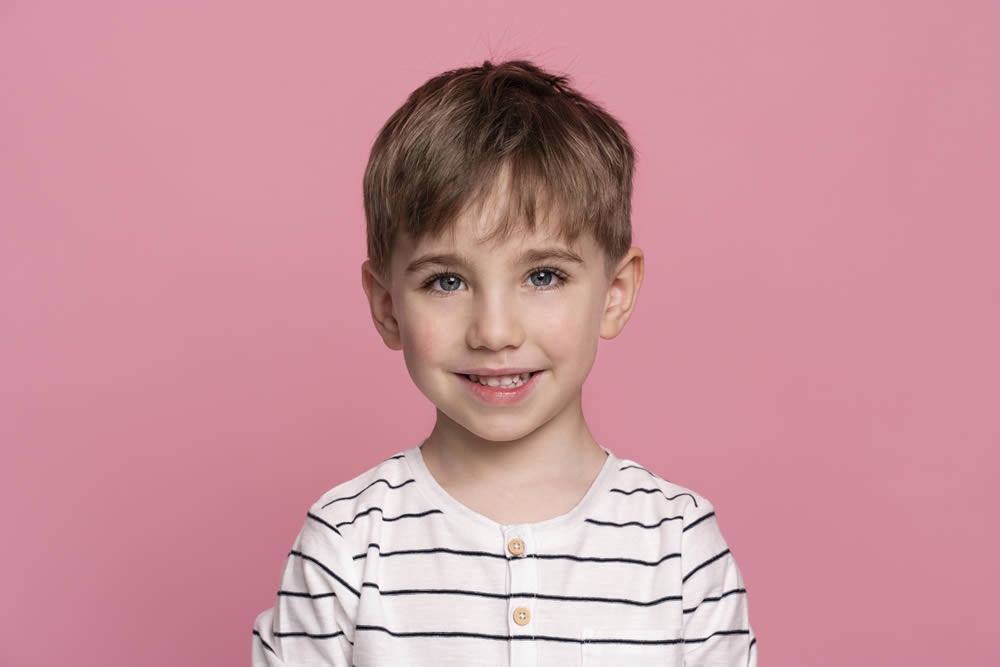
Kids’ headshots capture a child’s natural charm and personality. These photos are often used for school applications, modeling portfolios, dance or acting classes, family albums, or personal keepsakes. What makes capturing these photos more difficult is that kids are your models here.
That’s why you must create a relaxed and playful atmosphere that will help you capture genuine smiles and expressions. Also, sway away from the typical solid backgrounds and opt for colorful backgrounds and playful props to keep the child engaged during the shoot.
Unlock Your Best Shot: Navigating NYC’s Headshot Photographer Scene
If you are looking for the best professional headshot photographer in New York City, you must consider some factors. These factors will help you find some highly qualified photographers. Here’s how you can navigate through that –
1. Define Your Needs
Before looking for photographers, you must define what you seek. Different photographers specialize in different kinds of headshot photography. You will wander around like a headless chicken without knowing your headshot’s purpose. So, make sure to define your needs to narrow your search.
2. Explore Online Resources
Once you know the type of headshots you need, search the internet for the top choices. You must go to platforms like Yelp or Betterpic to look for renowned photographers specializing in your needs. Social media can also be a good way to discover headshot photographers in your area. Read reviews, browse portfolios, and get a feel for each photographer’s style.
3. Consider Location
New York is quite a large city, so visiting a photographer for a session won’t be easy if they are too far from your location. Factor in travel time and convenience when choosing a photographer. Determine if you prefer a Midtown studio or a photographer who offers on-location shoots. Then choose according to that.
4. Budget Matters:
Headshot pricing can vary depending on experience, location, and the photographer’s services offered. Set a realistic budget and be upfront about your pricing expectations during initial inquiries. Don’t go for cheap services only to save money; judge their work before you see their prices.
5. Directly Contact and Consult
Most professional photographers offer free consultations. Never hesitate to take that service before you go for paid sessions. A consultation service will give you a deeper insight into the photographer’s understanding, knowledge, and skills. A good photographer will take the time to understand your needs and ensure you feel comfortable.
6. Read the Reviews:
Lastly, rely on reviews of past clients to determine whether their services were satisfactory. While their portfolio showcases their work and skills. It can’t give you insights into a photographer’s professionalism, communication style, and overall experience. Reviews are a great way to know those factors.
Final Verdict
In conclusion, knowing how to take a headshot is half the job done; the rest is about how you implement the tips. It doesn’t matter if you are a beginner; you can easily start with headshot photography with the simple tips that we shared. A great way to start your journey is to click headshots of yourself.
Author’s Bio:
Based in New York City, David Genik is the premier headshot photographer in the area. He specializes in portraits for actors, fashion industry clients, LinkedIn profiles, corporations, executives, and other professionals. David’s photography style is heavily influenced by fashion-based editorials with dramatic lighting choices mixed with classic design. With over 15 years of experience photographing diverse subjects, David is highly skilled at connecting with his clients and understanding their needs for the perfect headshot. Whether his clients are looking for traditional corporate shots or edgy, artistic portraits, David works closely with them to understand their vision and goals. The final images showcase both his technical expertise and creative artistry.
